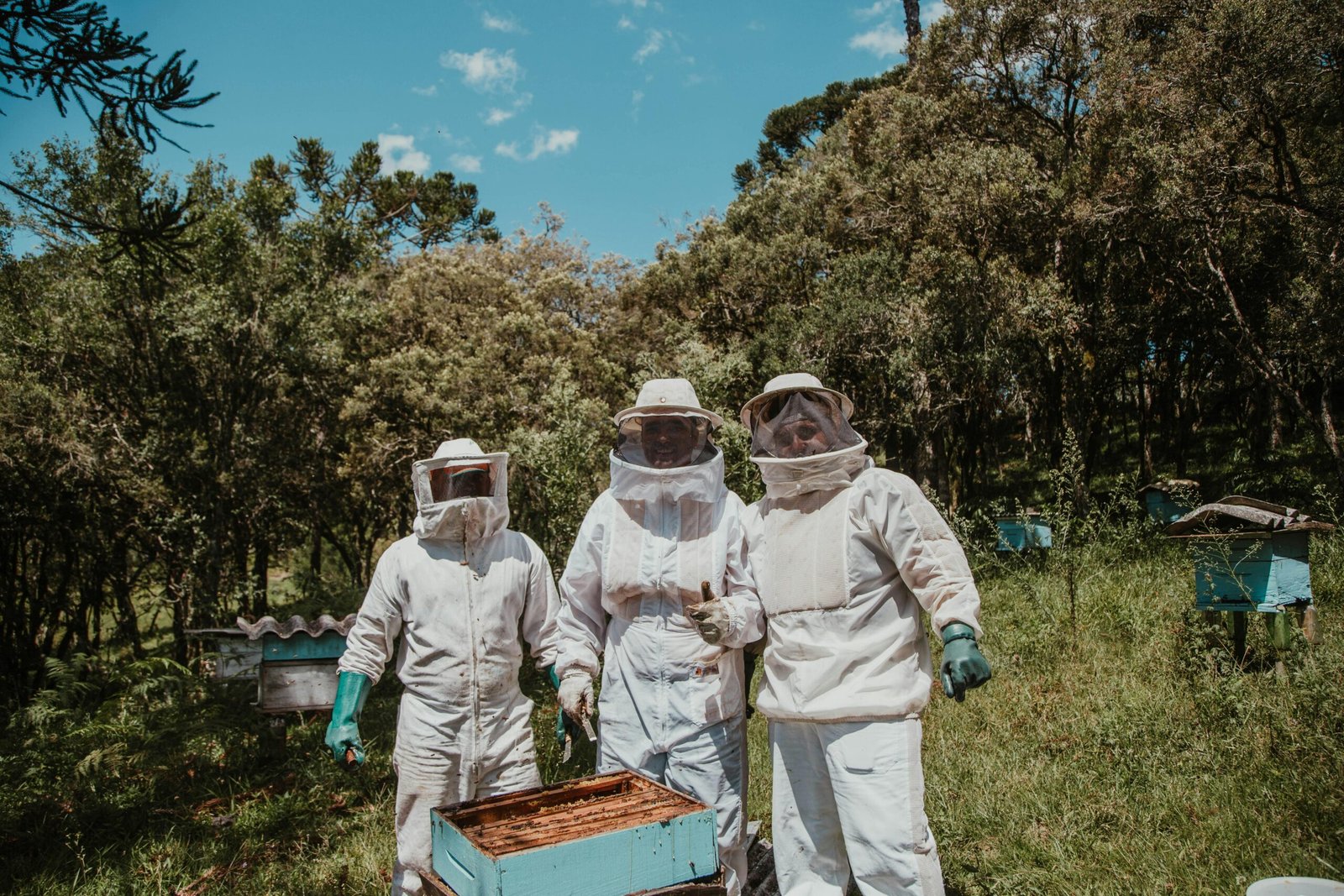
Imagine a world where bustling cityscapes and peaceful gardens harmoniously coexist, all thanks to the humble honeybee. Urban Beekeeping, the practice of keeping beehives in cities, has emerged as a captivating endeavor that not only enhances the conservation of essential pollinators but also nurtures biodiversity. From rooftop gardens to community parks, the growing trend of urban beekeeping is transforming urban landscapes into havens for bees, fostering a healthier environment for both humans and nature. As we delve into the fascinating world of urban beekeeping, we uncover the integral role it plays in safeguarding our pollinators and nurturing the delicate balance of biodiversity.
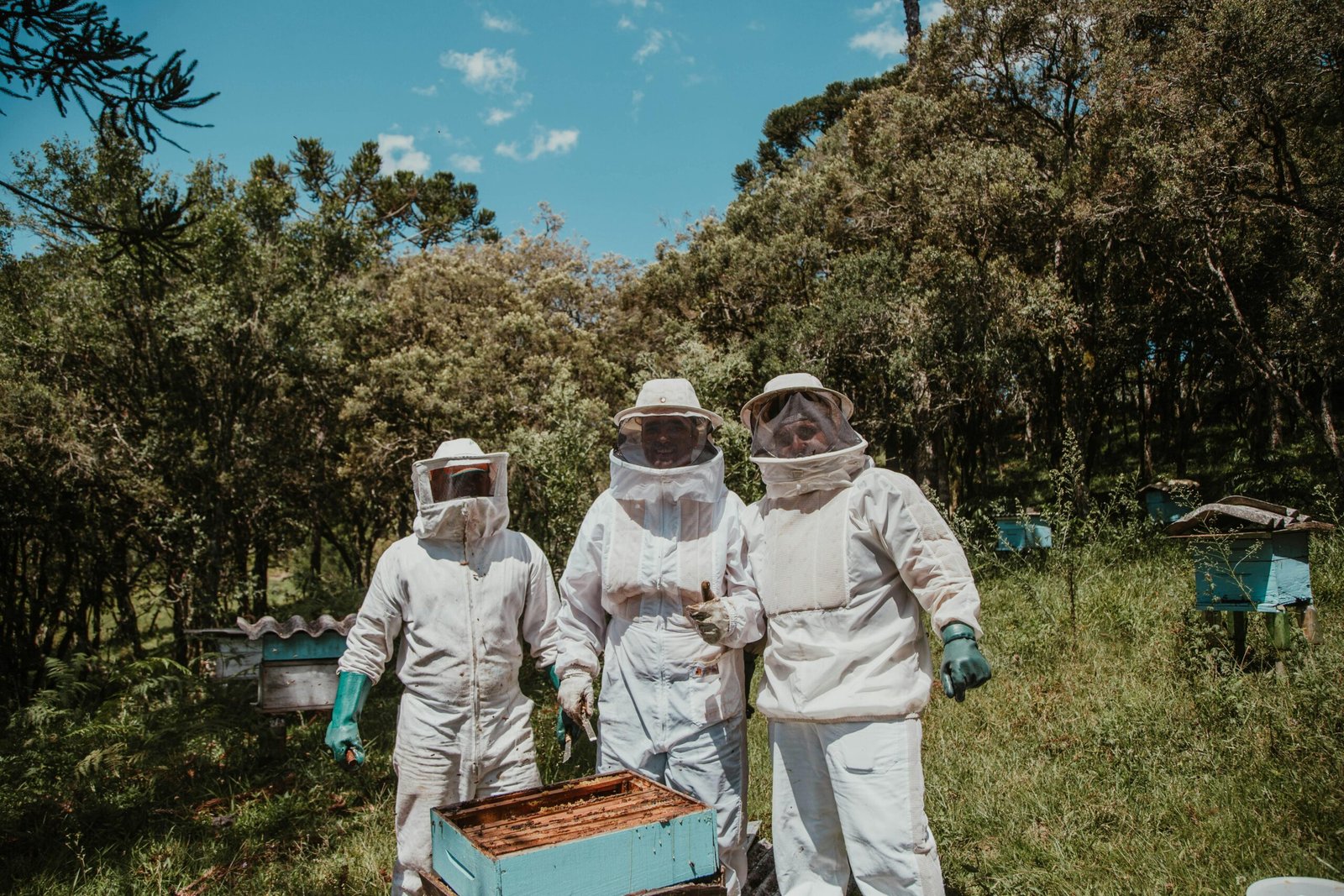
Benefits of Urban Beekeeping
Enhancing Pollinator Conservation
Urban beekeeping plays a significant role in enhancing pollinator conservation. As urban areas continue to expand, natural habitats for pollinators are being lost. Beekeeping in urban environments provides a sanctuary for bees and other pollinators by offering a safe and abundant food source. The presence of beehives in cities contributes to the preservation and restoration of pollinator populations, ensuring the continued pollination of plants and the overall health of ecosystems.
Promoting Biodiversity
Urban beekeeping also promotes biodiversity by creating diverse and thriving ecosystems within cities. Bees are crucial pollinators that facilitate the reproduction of various plant species, including both cultivated plants and wildflowers. By maintaining beehives in urban areas, a wide variety of plants and flowers can flourish, attracting other insects, birds, and wildlife. This interconnectedness fosters a complex web of life, contributing to the overall biodiversity of urban environments.
Understanding Urban Beekeeping
Definition and Overview
Urban beekeeping refers to the practice of keeping beehives in urban or suburban areas for the purpose of honey production, pollination services, and conservation efforts. Unlike traditional rural beekeeping, urban beekeeping involves managing beehives in densely populated areas. It provides opportunities for people living in cities to connect with nature, learn about bees and their importance, and actively participate in pollinator conservation.
Urban Beekeeping Equipment
To engage in urban beekeeping effectively, certain equipment is necessary. Some essential tools include beehives, such as Langstroth or top-bar hives, beekeeping suits or protective clothing, smoker, hive tool, and feeding equipment. It is crucial to invest in high-quality equipment to ensure the safety and well-being of both the beekeeper and the bees.
Beekeeping Regulations in Urban Areas
Before delving into urban beekeeping, it is important to research and understand the regulations and guidelines specific to the area. Different cities and municipalities may have varying regulations regarding the number of hives allowed, hive placement, and safety requirements. It is essential to obtain any necessary permits and follow local ordinances to ensure compliance and maintain a positive relationship with the community.
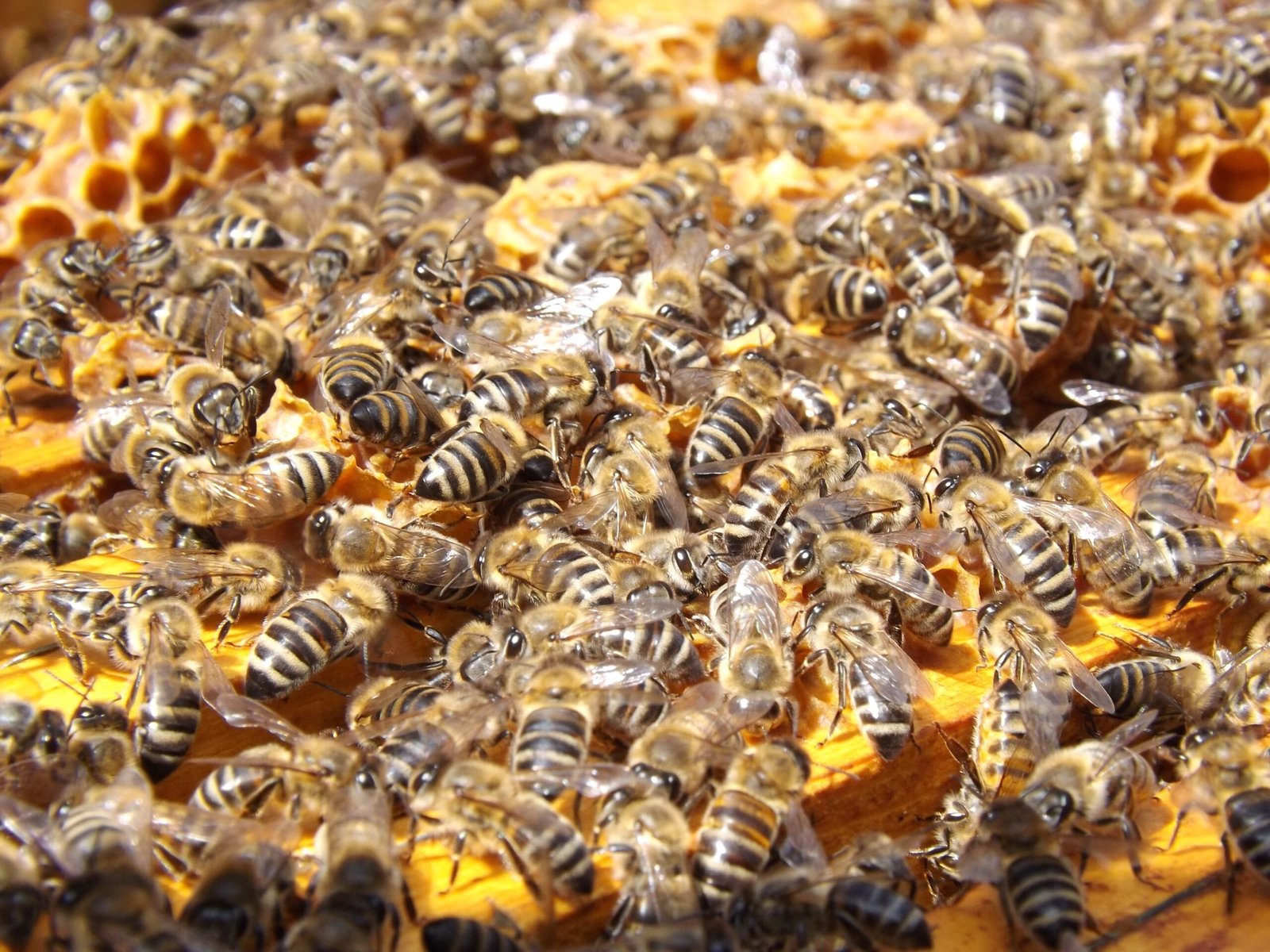
Importance of Pollinator Conservation
The Decline of Pollinators
Pollinators, including bees, butterflies, birds, and bats, are facing significant declines in population worldwide. Threats such as habitat loss, pesticide exposure, pollution, and climate change have all contributed to this decline. Urban beekeeping serves as an important tool in combating this decline by providing protected spaces and resources for pollinators to thrive.
Significance of Pollinators in Ecosystems
Pollinators play a crucial role in maintaining the health of ecosystems. They are responsible for the pollination of approximately 75% of leading food crops and 80% of flowering plants. Without pollinators, the reproduction of many plant species would be compromised, leading to a decline in food production and ecosystem stability. Urban beekeeping helps ensure the continual existence of pollinators, thus safeguarding the balance and resilience of urban ecosystems.
Impacts of Pollinator Loss
The loss of pollinators has far-reaching consequences for both the environment and human well-being. Reduced pollinator populations can lead to decreased crop yields, affecting food availability, diversity, and affordability. This can have detrimental effects on local and global economies, as well as food security. By promoting pollinator conservation through urban beekeeping, we can mitigate these impacts and safeguard the vital role that pollinators play in our lives.
Urban Challenges for Pollinators
Loss of Natural Habitats
Urbanization and expanding human settlements have resulted in the loss and fragmentation of natural habitats for pollinators. As cities grow, green spaces diminish, leaving little room for wildflowers and other native plants that provide food and shelter for bees and other pollinators. Urban beekeeping provides a solution by creating artificial habitats and ensuring a year-round supply of nectar and pollen for bees to thrive.
Exposure to Pesticides
Pollinators face substantial risks from exposure to pesticides in urban areas. The use of pesticides for gardening, lawn care, and pest control can have harmful effects on bees and other beneficial insects. Urban beekeeping can act as a buffer against pesticide exposure by providing a controlled environment where the use of harmful chemicals can be reduced or avoided altogether. By creating pesticide-free havens, urban beekeeping contributes to the protection of pollinators from toxic substances.
Climate Change Effects
Climate change poses additional challenges to pollinators in urban environments. Rising temperatures, altered rainfall patterns, and changing seasonal cycles can disrupt the synchronization between plant flowering and pollinator activity. Urban beekeeping supports pollinator populations by diversifying food sources and providing a stable environment that mitigates some of the negative impacts of climate change. Beekeepers can manage the beehives to adapt to changing conditions and ensure the survival of the colonies.
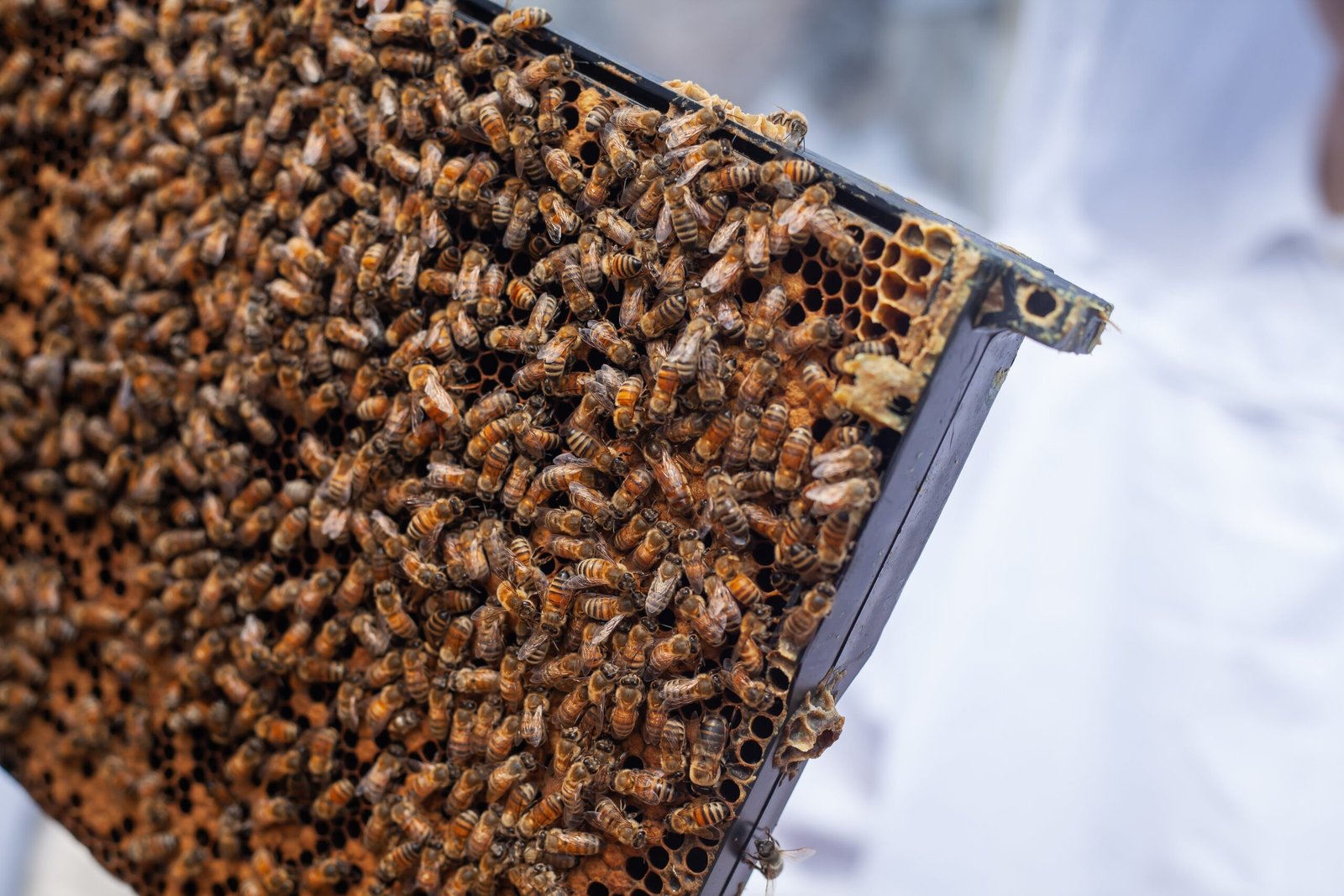
Role of Beekeeping in Urban Areas
Enhancing Pollination Services
Beekeeping in urban areas significantly enhances pollination services in gardens, parks, and urban green spaces. Bees transfer pollen between flowers as they collect nectar, enabling plants to reproduce and produce fruits and seeds. By maintaining beehives, urban beekeepers facilitate the pollination of nearby plants, resulting in increased yields, improved quality, and enhanced biodiversity in urban gardens and landscapes.
Providing Urban Green Spaces
Beekeeping in cities contributes to the creation of vibrant and biodiverse urban green spaces. Honeybees and other wild bees are known to forage in a radius of up to three miles from their hives, resulting in the cross-pollination of plants throughout the city. This increased plant diversity attracts a range of insects, birds, and other wildlife, creating thriving ecosystems within urban environments. Urban beekeeping transforms concrete jungles into havens for biodiversity.
Educational Opportunities
Urban beekeeping offers valuable educational opportunities for people of all ages. By engaging in beekeeping practices, individuals can learn about the intricate lives of bees, the importance of pollinators, and the ecological connections that sustain our ecosystems. Beekeeping associations, community gardens, and educational institutions often offer workshops and programs that teach urban dwellers about the fascinating world of bees and their role in maintaining a healthy environment.
Promoting Coexistence with Wildlife
Urban beekeeping promotes coexistence between humans and wildlife by fostering a sense of stewardship and respect for nature. As urban environments are often perceived as disconnected from the natural world, beekeeping provides a tangible and accessible way for individuals to reconnect with the environment and understand the fundamental interactions between humans, animals, and ecosystems. It encourages the protection of wildlife habitats and reminds us of our responsibility as caretakers of the Earth.
Urban Beekeeping Practices
Beehive Placement
In urban areas, beehive placement is a critical factor to consider. Ideally, beehives should be located in areas with access to diverse sources of nectar and pollen, such as gardens, parks, and other green spaces. Hives should be positioned away from high-traffic areas and in a location that minimizes potential disturbances from humans and animals. Strategic placement ensures the safety and well-being of the bees while maximizing their ability to pollinate surrounding plants.
Beekeeping Techniques for Urban Areas
Beekeeping techniques in urban areas often prioritize the well-being and productivity of bee colonies in limited spaces. Practices such as colony management, disease prevention and control, honey harvesting, and swarm prevention require careful attention. Urban beekeepers may need to adapt traditional techniques, such as frequent monitoring and proper hive ventilation, to suit the unique challenges and constraints of an urban environment.
Planting Pollinator-Friendly Gardens
One of the most effective ways to support urban beekeeping is by planting gardens that provide abundant and diverse sources of nectar and pollen. Incorporating native plants and flowers that bloom at different times of the year ensures a continuous supply of food for bees. Avoiding the use of pesticides and cultivating a pesticide-free environment further enhances the health and well-being of pollinators. Creating pollinator-friendly gardens not only supports urban bees but also contributes to the overall beauty and sustainability of urban landscapes.
Water Sources for Urban Bees
Access to water is crucial for the survival of bees, especially during hot and dry weather. In urban environments, providing a water source for bees is essential to ensure their well-being. Simple measures like placing shallow dishes filled with water in the garden or creating pollinator-friendly water features can help quench the thirst of urban bees. By providing accessible water sources, urban beekeepers help sustain healthy bee populations and support their vital role as pollinators.
Managing Colony Health
Maintaining the health of beehives is of utmost importance in urban beekeeping. Regular inspections of hives, monitoring for pests and diseases, and taking appropriate measures to control and prevent issues are essential practices. Urban beekeepers should stay informed about the latest research and best practices in beekeeping to ensure the long-term well-being and sustainability of their colonies. By prioritizing colony health, urban beekeepers contribute to the overall success and resilience of their local pollinator populations.
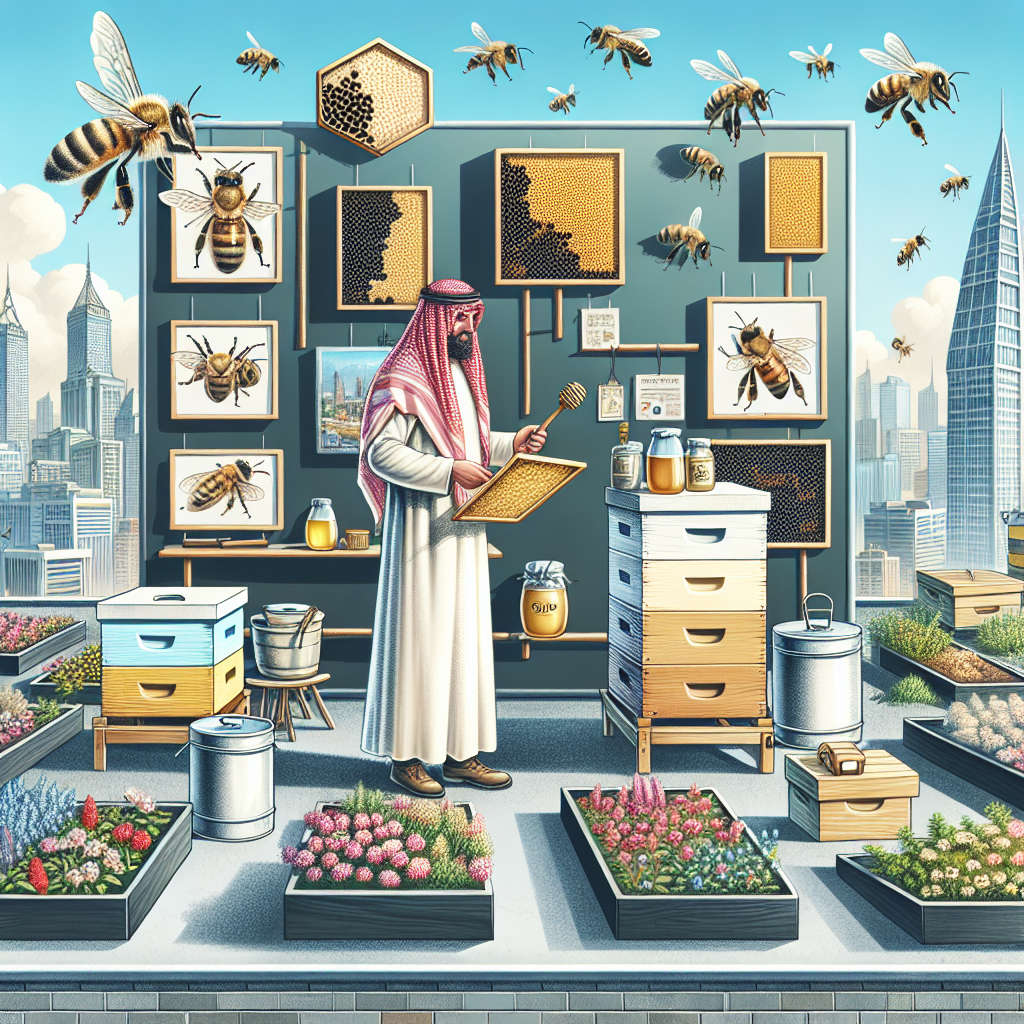
Community Engagement in Urban Beekeeping
Collaborative Beekeeping Initiatives
Collaboration is key in urban beekeeping. Collaborative initiatives bring together beekeepers, community organizations, businesses, and local governments to collectively promote pollinator conservation and urban beekeeping efforts. By pooling resources, sharing knowledge, and supporting one another, these initiatives can have a significant impact in fostering healthy and thriving urban beekeeping communities.
Creating Beekeeping Networks
Establishing beekeeping networks within urban areas is essential for knowledge sharing, mentorship, and advocacy. Beekeeping associations and clubs provide platforms for aspiring and experienced urban beekeepers to connect, exchange ideas, and support each other. These networks play a crucial role in disseminating information, organizing educational events, and fostering a sense of community among urban beekeepers.
Educational Workshops and Events
Educational workshops and events are effective tools for promoting urban beekeeping and raising awareness about the importance of pollinators. Beekeeping associations, community gardens, and local environmental organizations often organize workshops, seminars, and hands-on training sessions for individuals interested in learning about beekeeping. These events offer opportunities to engage the community, inspire future beekeepers, and foster a deeper understanding of the critical role bees play in the urban ecosystem.
Supporting Local Beekeeping Associations
Supporting local beekeeping associations is essential for the growth and longevity of urban beekeeping. These associations often serve as a central hub for information, resources, and mentorship. Participating in association activities, becoming a member, or volunteering can help foster a vibrant urban beekeeping community and ensure that beekeepers have the necessary support and guidance to succeed.
Regulations and Safety Considerations
Urban Beekeeping Regulations
Urban beekeepers must familiarize themselves with local regulations governing beekeeping in their area. These regulations may include the number of hives allowed, hive placement requirements, and safety precautions. Compliance with these regulations is crucial for maintaining a harmonious relationship with the local community and authorities while ensuring the safety of both the bees and the public.
Addressing Safety Concerns
Safety is a paramount concern in urban beekeeping. Beekeepers should prioritize safety measures to protect themselves, their bees, and the surrounding community. This includes wearing protective clothing while working with the bees, handling beehives with care, and being mindful of potential risks associated with bee stings. Proper signage and well-maintained hives can help effectively communicate the presence of bees, ensuring the safety of passersby and neighbors.
Communication with Neighbors
Maintaining open and clear communication with neighbors is vital for successful urban beekeeping. Informing neighbors about your beekeeping activities, explaining the benefits of urban beekeeping, and addressing any concerns they may have can help build understanding and support within the community. Being a good neighbor includes being responsive to questions or concerns and taking appropriate measures to minimize any potential impact or inconvenience caused by the bees.

Success Stories of Urban Beekeeping
Transforming Unused Spaces into Bee-Friendly Areas
Urban beekeeping has successfully transformed abandoned lots, rooftops, and other underutilized urban spaces into thriving areas for beekeeping and pollinator habitats. Through community-driven efforts, these once-neglected spaces have been repurposed to promote biodiversity, enhance urban ecosystems, and create opportunities for educational and recreational activities.
Improving Local Biodiversity
Urban beekeeping has played a significant role in improving local biodiversity in cities around the world. By providing a safe haven for bees and other pollinators, urban beekeepers have contributed to the survival and expansion of various plant species. The re-introduction of native plants, along with the diversity of flowers in urban areas, has resulted in an upsurge of insects, birds, and other wildlife, ultimately enhancing the overall biodiversity of these urban landscapes.
Economic Benefits of Urban Honey Production
Aside from their ecological benefits, urban beekeeping can also provide economic advantages. Honey production in urban areas has created opportunities for small-scale businesses, local markets, and urban beekeepers to generate income. The sale of high-quality, locally produced honey contributes to the local economy while promoting sustainable agricultural practices and raising awareness about the importance of supporting pollinators.
Conclusion
Urban beekeeping has emerged as a powerful tool in enhancing pollinator conservation and promoting biodiversity in urban environments. By establishing beehives, providing food sources, and creating conducive habitats, urban beekeepers contribute to the protection and preservation of pollinators and the ecosystems they support. Additionally, by engaging in educational initiatives, collaborating with communities, and adhering to regulations, urban beekeepers foster a sense of environmental stewardship and encourage coexistence with wildlife. Through these efforts, urban beekeeping has the potential to transform urban landscapes, improve local biodiversity, and create thriving and sustainable cities for both humans and bees alike. So, embrace the buzz and consider becoming an urban beekeeper to play your part in safeguarding the future of our pollinators.





